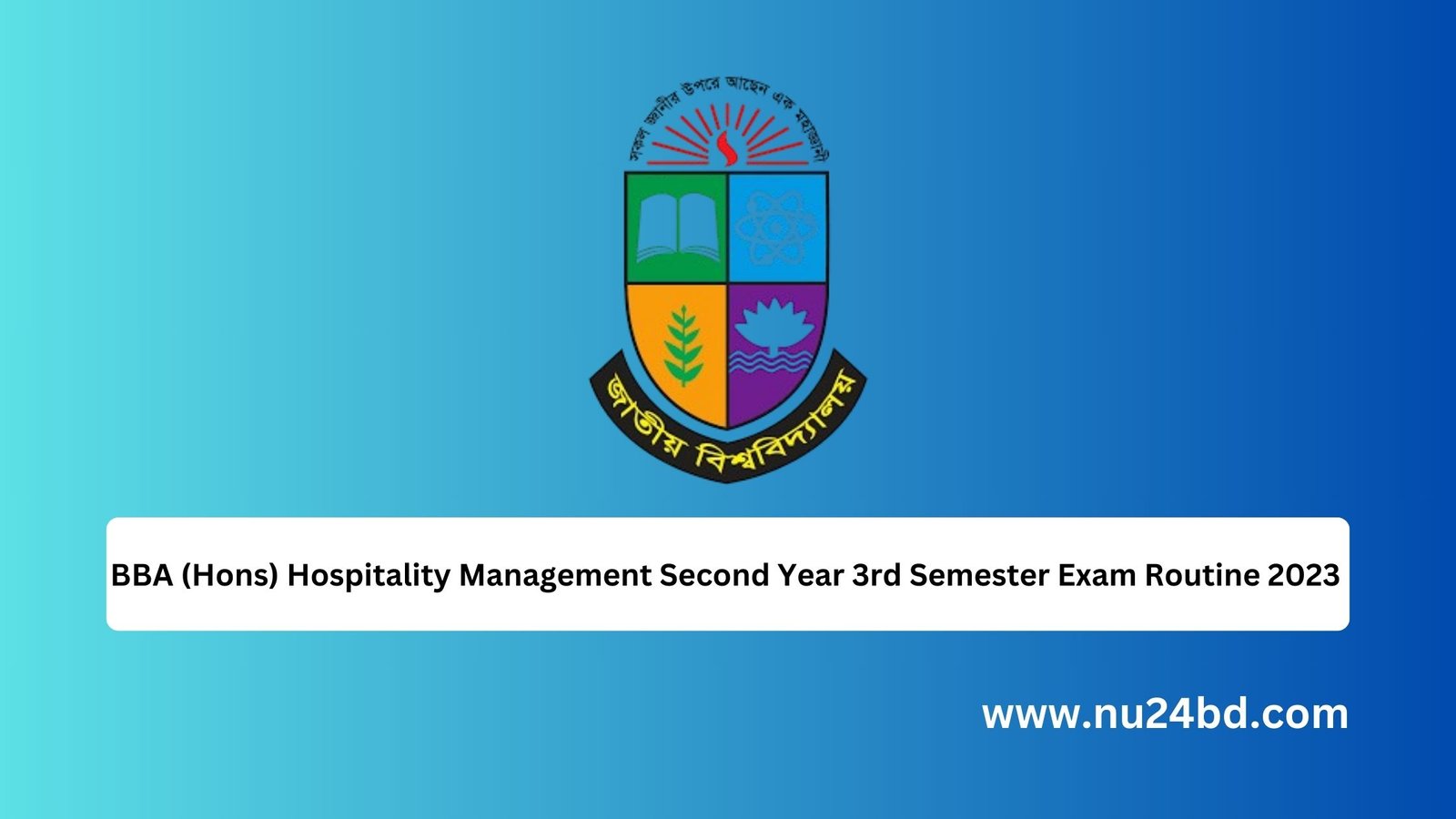Hospitality Management Second Year 3rd Routing The Bachelor of Business Administration (BBA) in Tourism and Hospitality Management has gained significant popularity in recent years due to the rapid growth of the tourism industry. Hospitality Management Second Year 3rd Routing Students pursuing this degree get a well-rounded education that merges both the business side of tourism and the operational aspects of hospitality. If you’re a second-year student in the third semester, you’re likely gearing up for the upcoming exams, and knowing the exam routing and structure is crucial for your preparation. This guide will provide a detailed insight into the 2023 BBA (Hons) in Tourism and Hospitality Management second-year 3rd-semester exam routing, including subject coverage, preparation tips, and a breakdown of exam patterns. Ensure you bring all necessary materials to the exam, such as pens, calculators (if needed for financial exams), and your student ID
Hospitality Management Second Year 3rd Routing
Hospitality Management Second Year 3rd Routing Tourism and Hospitality Management is a specialized undergraduate degree focusing on the management aspects of the tourism and hospitality sectors. The program typically spans over four years and covers various topics such as customer service, marketing, event management, and hospitality operations. By the second year, students have a solid foundation in business principles and are starting to delve into industry-specific subjects that equip them for careers in hotels, resorts, airlines, travel agencies, and event management companies. www.nu24bd.com
Hospitality Management Second Year 3rd Routing Overview of the Second Year Curriculum
In the second year of the BBA (Hons) in Tourism and Hospitality Management, the curriculum is more specialized and industry-focused. Students dive into subjects that cover essential knowledge about tourism, hospitality operations, customer relationship management, and financial analysis. As you enter the third semester, your courses are more advanced, focusing on providing a deeper understanding of how the tourism and hospitality industries function in a global context.
Importance of the 3rd Semester in the BBA Program
The third semester marks a critical phase in the BBA program. It’s where students begin to grasp the full scope of what the hospitality and tourism industry entails, from theory to practical application. This semester acts as a bridge between basic introductory courses and more specialized subjects that will come in the later stages of the program. The knowledge acquired in the third semester plays a fundamental role in shaping your future success, especially during internships and early-career roles.
Subjects Covered in the 3rd Semester
1. Tourism Economics
Tourism Economics provides students with an understanding of economic theories and models as they apply to the tourism industry. This subject deals with market demand, supply, and the overall economic impacts of tourism on national and international scales.
2. Hospitality Operations Management
This subject introduces students to the operational functions of managing a hotel or hospitality service. It includes everything from front desk management to housekeeping, food and beverage operations, and event planning.
3. Marketing in Tourism and Hospitality
Marketing is vital in tourism and hospitality. In this subject, students learn how to promote destinations, hotels, and tourism products effectively. The course explores digital marketing strategies, social media engagement, and the importance of customer reviews and experiences.
4. Financial Management for Tourism and Hospitality
Financial management skills are critical in any business, including tourism and hospitality. This subject covers topics such as budgeting, cost control, and revenue management, helping students understand the financial underpinnings of successful tourism and hospitality enterprises.
5. Customer Relationship Management
Customer Relationship Management (CRM) is all about maintaining positive relationships with guests and clients. Students learn how to use technology and strategies to enhance customer satisfaction and loyalty, which are essential for long-term success in the hospitality industry.
